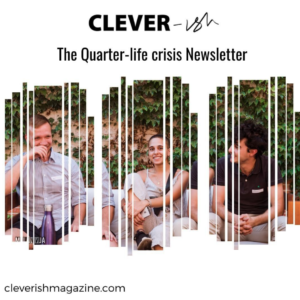Are all friendships meant to last forever? I’ve had to confront this question a few times over the course of my adult life. The answer is no.
 Polina/Pexels
Polina/Pexels
Some friendships fail because you’re not the same person you were when you first met. And neither are they. Interests, preferences, and even personalities change and evolve. When this happens, you might find you no longer have much in common with your best friend from kindergarten. There is a Nigerian proverb that says 20 children cannot play together for 20 years. People grow apart and, that doesn’t have to be a bad thing.
Some friendships devolve and become co-dependent, one-sided, or unhealthy. These relationships end up bringing you more heartache than joy. I’ve watched friends get hurt as they try to hold on to a toxic friendship with someone they didn’t even like ( so-called frenemies). On a few of these occasions, I’ve asked: “why are you still friends?” and they stutter and struggle to answer. Most of us hold on to friendship because we feel obligated or bound for life to this individual. As an adult, one thing you have to learn is, that you can move on from a friend.
However, ending a friendship doesn’t have to be dramatic or involve hurt feelings. There are ways you can end a friendship without hurting their feelings. If you’re not honest about what you need to do and face it head-on, you could end up with a messy situation like getting into a fight where things said can never be taken back. Instead, approach ending a friendship with intention and kindness so you don’t hurt their feelings. Or yours.
So how do you move on from a toxic, incompatible, unhealthy friendship? I have 3 suggestions for you. I recommend these three methods based on personal experiences and I try to be as real and honest.
1. Have an honest and up-front “break-up” conversation
This is extremely difficult to do and takes a high level of maturity and guts. If you’re lucky, the other party is just as mature and self-aware so, they engage with you amicably. In a situation where you want to end a friendship because someone hurt your feelings and you need closure, this is a good approach to use. A few years ago, I had a conversation like this with a childhood friend. I said: “You’ve hurt me beyond recompense. I forgive you but, I can’t continue to be friends with you”. Intense but effective. Besides, I believe that encounter was one of the defining moments for me as an adult. It was a difficult experience that contributed to my growth in the end. Perhaps leaving that toxic friendship is just what you need to reach your next level of self-awareness and self-love!
2. Have a vaguely honest conversation
You don’t have to say outrightly that you want the friendship to end. But you can drop hints that hopefully, they pick up on your hints. This is particularly helpful in co-dependent or one-sided friendships. Try making yourself less and less available or around. You could say something like “sorry I can’t meet up because I’m going to be busy every weekend for the next 6 months” lol. Hopefully, you’re more tactful in your approach. If you’re lucky, they get the hint. This is also helpful with friends that you generally have fun with but beyond the surface, you know the friendship is toxic and you always feel drained and exploited by their behavior or drama. You have to be consistent with making yourself unavailable. Don’t keep going back to this friend when you’re bored. (That makes you a user and the toxic one). Create physical distance over time, and if this doesn’t work, refer to points one or three.
3. Ghosting
I don’t recommend Ghosting people. However, some people are so imposing, dominating, and manipulative that cutting complete communication with them might just be what you need to keep your sanity and maintain boundaries. You can do this for new friends whom you quickly realize aren’t the right fit for you or your values. I’ve considered doing this a few times. Maybe I’ve done it once or twice. Maybe.
Not sure if you’re in a toxic friendship? Here are some signs you can look out for.
PS: I’m not telling you to be a flake or to abandon your friendships and relationships after one argument. Almost everyone I know has, at some point, had to deal with a toxic or draining friend. I believe learning how to handle this inevitable stage in adulthood is crucial.
For more content like this, sign up for the Quarter-life crisis Newsletter. THE QUARTER-LIFE CRISIS NEWSLETTER









